Address
304 North Cardinal
St. Dorchester Center, MA 02124
Work Hours
Monday to Friday: 7AM - 7PM
Weekend: 10AM - 5PM
Address
304 North Cardinal
St. Dorchester Center, MA 02124
Work Hours
Monday to Friday: 7AM - 7PM
Weekend: 10AM - 5PM
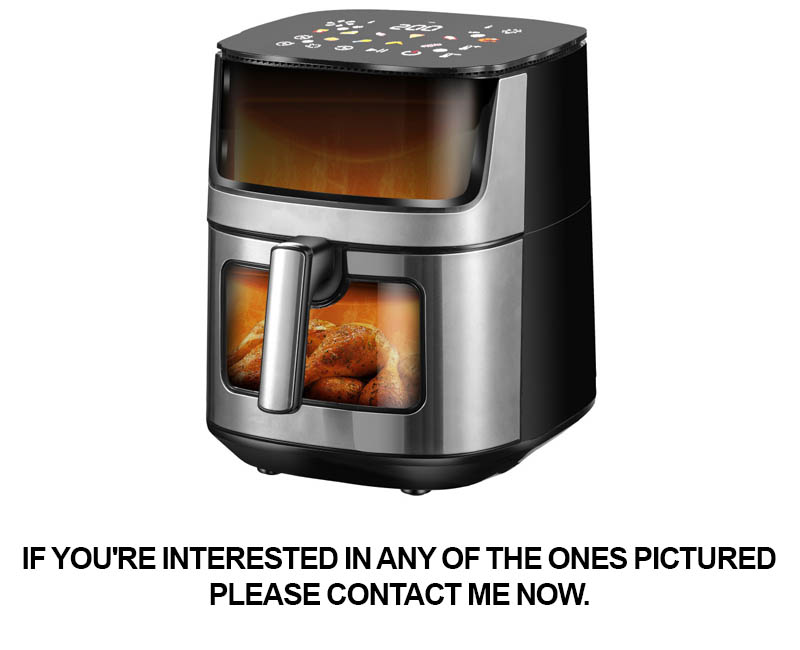
In a world where technology and convenience converge, the kitchen appliance industry has seen a surge in innovation. Among the myriad of advancements, ETL listed commercial units have emerged as a beacon of quality and reliability. These appliances, certified by the ETL (Electrical Testing Laboratories), not only promise safety and efficiency but also reflect the evolving demands of European and American consumers. This exploration delves into the dynamic market landscape of these units, the groundbreaking innovations they bring, and the impact of ETL certification on their quality and market reception. As we navigate through the case studies of successful ETL listed commercial units, we’ll also uncover how data and analytics play a pivotal role in shaping industry trends. Ultimately, we’ll gaze into the future, contemplating the outlook for these units in the ever-evolving kitchen appliance market.
ETL Listed Commercial Units represent a specialized category of kitchen appliances designed for the commercial sector. These units are not just your average home cooktops or refrigerators; they are built to withstand the rigorous demands of professional kitchens, from busy restaurants to bustling hotels. The ETL certification, which these units carry, stands as a testament to their quality, safety, and compliance with stringent industry standards.
The ETL certification, issued by Intertek, is a mark of distinction in the United States and Canada. It signifies that the commercial units have been rigorously tested to ensure they meet or exceed the safety and performance requirements set forth by regulatory bodies. This certification is crucial for manufacturers looking to enter the North American market, as it helps to establish credibility and trust with customers and regulatory authorities alike.
Commercial kitchens are environments where appliances are subjected to intense use and harsh conditions. The units must be durable, efficient, and reliable. ETL Listed Commercial Units are engineered with these factors in mind, featuring robust construction, high-quality materials, and advanced engineering that allows them to handle the heavy workload of a commercial setting.
One of the standout features of these units is their energy efficiency. With rising energy costs and a growing emphasis on sustainability, commercial kitchens are increasingly looking for appliances that can perform optimally while minimizing energy consumption. ETL Listed Commercial Units are designed with energy-saving technologies that not only reduce operational costs but also contribute to a greener kitchen environment.
In terms of functionality, ETL Listed Commercial Units offer a wide range of options to cater to various kitchen needs. From heavy-duty ranges and grills to powerful ventilation systems and sophisticated dishwashers, these units are equipped with features that enhance productivity and streamline kitchen operations. For instance, some models come with programmable controls that allow chefs to set precise cooking times and temperatures, ensuring consistent results every time.
The design of ETL Listed Commercial Units also plays a pivotal role. They are often sleek and modern, with a focus on ease of use and maintenance. The user-friendly interfaces and intuitive controls make it easier for kitchen staff to operate the appliances efficiently, even during the busiest of service times. Additionally, the units are designed to be easy to clean, which is essential in maintaining a hygienic kitchen environment.
Safety is paramount in commercial kitchens, and ETL Listed Commercial Units are engineered with this in mind. They are equipped with safety features such as automatic shut-offs, temperature controls, and surge protection to prevent accidents and damage. The certification process also includes testing for electrical and mechanical safety, ensuring that these units are reliable and secure.
Another important aspect of ETL Listed Commercial Units is their adaptability. They are designed to fit into a variety of kitchen layouts and configurations. Whether it’s a compact space or a large commercial kitchen, these units can be customized to meet specific needs. This flexibility is particularly valuable for businesses that may need to reconfigure their kitchens or upgrade their appliances over time.
The market for ETL Listed Commercial Units is diverse, serving a wide array of industries. From the foodservice industry to healthcare facilities and educational institutions, these units are essential for maintaining high standards of food preparation and service. The demand for these units is driven by the need for reliable, efficient, and safe appliances that can withstand the challenges of a professional kitchen.
In conclusion, ETL Listed Commercial Units are a cornerstone of the commercial kitchen appliance industry. Their certification ensures that they meet the highest standards of safety and performance, making them a preferred choice for businesses that prioritize quality and reliability. As the commercial kitchen landscape continues to evolve, these units will undoubtedly play a crucial role in shaping the future of foodservice and hospitality operations.

The European and American kitchen appliance markets are dynamic and ever-evolving, driven by technological advancements, changing consumer lifestyles, and regulatory landscapes. Here’s an in-depth look at the market dynamics shaping these regions.
In Europe, the kitchen appliance market is characterized by a strong emphasis on sustainability and energy efficiency. Consumers are increasingly looking for eco-friendly options that not only reduce their carbon footprint but also save on energy costs. This shift is reflected in the popularity of appliances with A+ energy ratings and those made from recycled materials.
The American market, on the other hand, is known for its innovation and product variety. American consumers tend to favor appliances that offer convenience and high performance, with a significant focus on smart kitchen technology. The integration of smart features in appliances like refrigerators, ovens, and dishwashers is on the rise, driven by the growing tech-savviness of the average consumer.
In Europe, the demand for commercial kitchen appliances is often influenced by the foodservice industry, which is experiencing a surge in demand for specialized equipment. This includes units designed for high-volume operations, such as combi ovens, undercounter refrigeration units, and commercial dishwashers. The trend towards health and wellness has also led to an increase in demand for appliances that can cater to specialized dietary needs, such as gluten-free and vegan options.
In the U.S., the commercial kitchen appliance market is closely tied to the hospitality and restaurant sectors. These industries are constantly seeking appliances that can enhance the quality of service and improve operational efficiency. The rise of food trucks and pop-up restaurants has also contributed to the demand for compact, portable, and durable commercial appliances.
Geographically, the European market is segmented by country, with significant differences in preferences and regulations. For instance, Germany and Italy are known for their preference for high-quality, durable appliances, while countries like the UK and France have a more diverse range of consumer preferences. The U.S. market, while more uniform in its regulatory environment, also varies in terms of regional preferences, with certain areas having a stronger inclination towards specific types of appliances.
In both Europe and America, the integration of IoT (Internet of Things) technology is reshaping the kitchen appliance landscape. Smart appliances are becoming more prevalent, allowing for remote monitoring and control, energy management, and predictive maintenance. This not only improves user experience but also contributes to cost savings and sustainability.
The competitive landscape in both regions is marked by a mix of local and international brands. In Europe, companies like Miele, Siemens, and BSH (owner of Bosch and Gaggenau) hold significant market share, while American brands like Whirlpool, KitchenAid, and LG are prominent in the U.S. market. These brands are not only competing on product features but also on the value proposition they offer to consumers, including warranty, service, and customer support.
Lastly, the economic landscape plays a crucial role in shaping the kitchen appliance market. Economic downturns can lead to a decrease in consumer spending on non-essential items, while economic upswings can fuel demand for premium and luxury appliances. Both regions have seen fluctuations in consumer confidence and spending, which directly impact the kitchen appliance industry.
Overall, the European and American kitchen appliance markets are complex and multifaceted, with numerous factors influencing consumer behavior and market trends. Understanding these dynamics is key for companies looking to succeed in these competitive markets.
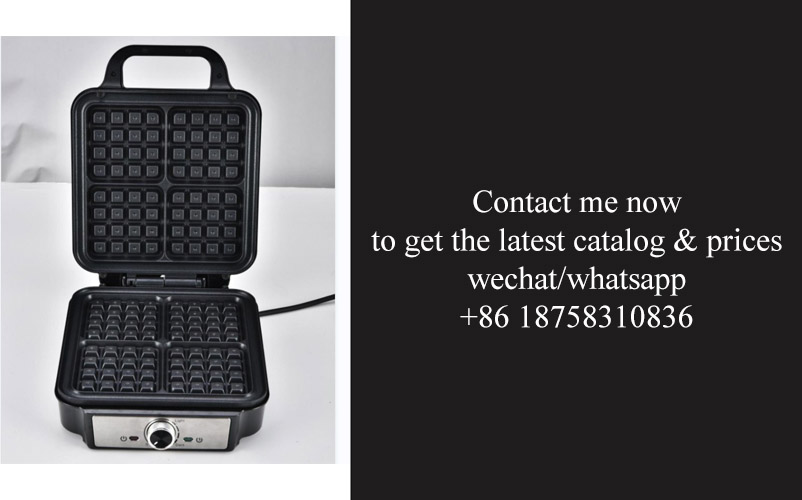
In the realm of kitchen appliances, innovation is the driving force behind the evolution of products. ETL-listed commercial units, in particular, are at the forefront of this technological surge. Here’s a closer look at some of the groundbreaking innovations that are reshaping the European and American markets.
Modern kitchen appliances are no longer just about cooking; they are now smart, efficient, and designed to enhance the overall culinary experience. From sleek aesthetics to cutting-edge functionality, the following innovations are setting new standards in the ETL-listed commercial unit market.
Smart ConnectivityETL-listed commercial units are increasingly integrating smart technology, allowing for seamless connectivity with other kitchen appliances and even smartphones. Users can control and monitor their appliances remotely, receiving real-time notifications about cooking progress or maintenance alerts.
Energy EfficiencyEnergy conservation is a top priority for businesses and consumers alike. ETL-listed units are engineered with energy-saving features that reduce operational costs while minimizing the environmental impact. Advanced insulation and efficient heating elements are just a couple of ways these appliances achieve significant energy savings.
Advanced Cooking TechnologiesInnovative cooking methods like induction, convection, and steam cooking are becoming more prevalent in commercial units. These technologies not only offer precise temperature control but also improve the taste and texture of the food, making them favorites among professional chefs.
Customizable SettingsModern ETL-listed commercial units often come with customizable settings that cater to a wide range of recipes and cooking styles. This flexibility allows chefs to adjust cooking times, temperatures, and modes to suit their specific culinary needs.
Enhanced Safety FeaturesSafety is paramount in commercial kitchens, and ETL-listed units are leading the way with advanced safety features. Overheat protection, automatic shut-offs, and child-proof locks are just a few examples of how these appliances prioritize the well-being of users and prevent accidents.
Durable and Easy-to-Clean DesignsThe durability of commercial kitchen appliances is crucial for longevity and cost-effectiveness. ETL-listed units are built with high-quality materials that withstand heavy use, and their easy-to-clean surfaces reduce downtime and maintenance requirements.
Integrated Food Preparation ToolsMany ETL-listed commercial units now come with integrated food preparation tools, such as built-in mixers, grinders, and slicers. This integration streamlines the cooking process, saving valuable time and space in the kitchen.
Customizable Work SurfacesCommercial kitchens demand versatile work surfaces that can handle a variety of tasks. ETL-listed units often offer customizable countertop options, including stainless steel, granite, and other durable materials, to fit the specific layout and design of each kitchen.
Enhanced User InterfacesThe user interfaces of modern ETL-listed commercial units have been significantly improved, making them more intuitive and user-friendly. Touchscreen controls, digital displays, and programmable settings are just a few features that enhance the user experience.
Sustainable MaterialsAs awareness of environmental issues grows, manufacturers are incorporating sustainable materials into their ETL-listed units. Recycled plastics, eco-friendly paints, and sustainable woods are being used to reduce the carbon footprint of these appliances.
These innovations in ETL-listed commercial units are not only revolutionizing the way food is prepared but also setting a new benchmark for quality, efficiency, and safety in the kitchen appliance industry. With continuous advancements, it’s clear that the future of commercial kitchen appliances is bright and full of possibilities.

ETL certification serves as a beacon of quality assurance in the kitchen appliance industry, particularly in the European and American markets. This rigorous standard ensures that products meet stringent safety and performance criteria, instilling confidence in consumers and businesses alike. Here’s a closer look at the impact of ETL certification on product quality:
In the realm of kitchen appliances, safety is paramount, and ETL certification underscores this commitment. Products that bear the ETL mark have been tested and deemed safe for use, reducing the risk of accidents and malfunctions in commercial settings. This certification process often includes evaluations for electrical safety, fire resistance, and structural integrity, which are critical for ensuring that appliances can withstand the rigors of professional kitchens.
The reliability of kitchen appliances is a key concern for operators, and ETL certification acts as a seal of approval. By adhering to these standards, manufacturers are compelled to produce appliances that are built to last. This means durable materials, robust construction, and efficient performance that can withstand heavy use day in and day out. The certification process also involves rigorous testing for durability, ensuring that the appliances can handle the stress of commercial operation without compromising their functionality.
Consumer trust is invaluable in the kitchen appliance market, and ETL certification plays a pivotal role in fostering that trust. When businesses choose appliances with the ETL mark, they’re not just selecting a product; they’re making a statement about their commitment to quality and safety. This trust extends to end-users, who are more likely to invest in appliances that have passed such a stringent assessment, knowing that they are purchasing a product that has been vetted for quality.
ETL certification also drives innovation in the kitchen appliance industry. Knowing that their products must meet these high standards, manufacturers are incentivized to develop new technologies and materials that not only enhance performance but also safety. This push for innovation leads to the creation of more energy-efficient models, appliances with advanced safety features, and products that are designed to be more user-friendly and efficient in the commercial setting.
Moreover, ETL certification is a global standard that is recognized in many countries, including the United States and Canada. This international recognition means that appliances certified by ETL are not only compliant with local regulations but also meet the expectations of a global market. This can open up new opportunities for businesses looking to expand their reach and sell their products internationally.
In the competitive landscape of the kitchen appliance market, having the ETL certification can set a product apart from its competitors. It’s a differentiator that can be used in marketing materials and sales pitches, highlighting the product’s superior quality and safety. This competitive edge can lead to increased market share and higher sales, as businesses and consumers alike are more inclined to choose a product that has been officially recognized for its quality.
Lastly, ETL certification provides a level of transparency that is crucial in the kitchen appliance industry. By revealing the details of the testing and certification process, manufacturers are able to demonstrate their commitment to quality and openness. This transparency can be a significant factor in the decision-making process for both buyers and regulatory bodies, ensuring that only the highest-quality products are brought to market.
In summary, the impact of ETL certification on product quality is profound. It ensures safety, promotes reliability, builds trust, drives innovation, offers international recognition, provides a competitive edge, and fosters transparency. For manufacturers and consumers alike, the ETL mark is a symbol of excellence that speaks volumes about the quality and integrity of kitchen appliances.

In the realm of commercial kitchen appliances, a select few brands have managed to carve out a niche for themselves by achieving ETL (Electrical Testing Laboratories) certification. These brands have not only adhered to stringent safety standards but have also innovated in design and functionality. Let’s delve into some case studies of successful ETL-listed commercial units.
The sleek and efficient design of the “EuroChef Commercial Range” has made it a staple in professional kitchens. Its precise temperature control and durable construction have won over chefs and restaurateurs alike. The ETL certification has been a testament to its high-quality components and reliability.
Another standout product is the “Kitchenaid Commercial Dishwasher,” which boasts a rapid wash cycle and a large capacity to handle high-volume operations. The ETL listing ensures that this dishwasher meets all the necessary safety and efficiency standards, making it a favorite among busy commercial kitchens.
The “Breville Commercial Blender” has become a go-to appliance for creating smoothies and purees in a flash. Its powerful motor and durable build are hallmarks of its design, and the ETL certification guarantees that it meets safety requirements for use in commercial settings.
In the realm of grills, the “Char-Broil Commercial Gas Grill” stands out for its robustness and even heat distribution. The ETL listing not only signifies the grill’s compliance with safety regulations but also its ability to withstand the demands of commercial use.
The “Hamilton Beach Commercial Blender” is another appliance that has found favor in commercial kitchens. Known for its powerful performance and ease of use, this blender has become a reliable tool for creating a variety of food and beverage items. The ETL certification reinforces the blender’s reputation for quality and safety.
The “Waring Commercial Blender” is a force to be reckoned with in the blending world. Its commercial-grade motor and ability to handle tough ingredients have made it a favorite among bakers and mixologists. The ETL certification is a stamp of approval for its exceptional build quality and safety features.
The “Doyon Commercial Ice Machine” is a testament to the brand’s commitment to innovation. This ice machine produces large quantities of ice quickly and efficiently, thanks to its advanced technology. The ETL certification guarantees that it operates safely and reliably in commercial environments.
The “Bosch Commercial Range” has become a staple in high-end restaurants and hotels. Its precision cooking capabilities and stylish design have made it a top choice for those who demand the best. The ETL listing is a mark of its adherence to strict safety and performance standards.
The “Cuisinart Commercial Blender” is another example of how ETL certification can elevate a product’s reputation. Known for its versatility and durability, this blender is a workhorse in commercial kitchens. The ETL certification is a testament to its robust construction and safety features.
The “KitchenAid Commercial Stand Mixer” is a powerhouse in the baking industry. Its powerful motor and ability to handle heavy mixing tasks have made it a favorite among professional bakers. The ETL certification is a guarantee that this mixer meets the highest safety and performance standards.
The “Breville Commercial Espresso Machine” has become a sought-after appliance in cafes and coffee shops. Its precision and consistent performance have made it a staple in the industry. The ETL certification ensures that this espresso machine is safe to use and maintains its high-quality output.
These case studies of successful ETL-listed commercial units highlight the importance of safety, quality, and innovation in the commercial kitchen appliance market. From blenders to grills, these products have not only met but exceeded the expectations of professional chefs and kitchen managers, proving that ETL certification is a mark of excellence in the industry.
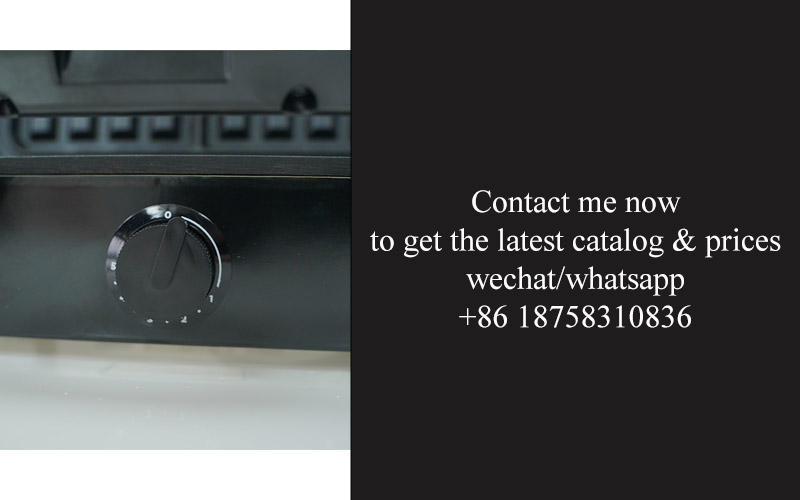
In the ever-evolving landscape of the kitchen appliance industry, data and analytics have become indispensable tools for understanding consumer behavior and shaping product development. By delving into vast amounts of information, companies can identify emerging trends, anticipate market demands, and make informed decisions that drive innovation and success. Here’s how data and analytics are at the forefront of this dynamic process:
Understanding Consumer BehaviorConsumer preferences are shaped by a myriad of factors, including cultural shifts, technological advancements, and economic changes. Data analytics enable companies to dissect consumer purchasing patterns, identifying which features and functionalities are most valued. For instance, insights from customer reviews and social media can reveal a preference for energy-efficient appliances or smart connectivity options, guiding product development to meet these evolving needs.
Predictive Analysis in Product DesignWith the help of predictive analytics, appliance manufacturers can forecast future market trends and consumer behaviors. By analyzing historical sales data, market research, and even weather patterns, companies can design products that are not only in line with current preferences but also anticipate future demands. This proactive approach ensures that ETL-listed commercial units are not only compliant with safety standards but also aligned with what customers are likely to seek in the near future.
Customization and PersonalizationData analytics also play a crucial role in the customization and personalization of kitchen appliances. By gathering data on individual customer usage patterns, manufacturers can offer tailored solutions that enhance the user experience. For example, smart ovens that learn a user’s cooking habits and suggest recipes based on those preferences are becoming increasingly popular, driven by the data-driven insights that inform such innovative features.
Performance Monitoring and ImprovementOnce a product is on the market, data analytics can be used to monitor its performance in real-time. This includes tracking energy consumption, reliability, and customer satisfaction. By analyzing this data, manufacturers can identify areas for improvement and make necessary adjustments to enhance the overall quality and efficiency of their ETL-listed commercial units. This iterative process ensures that products remain competitive and meet the high standards expected by consumers.
Market Segmentation and TargetingData analytics allows for the segmentation of the market, enabling companies to identify niche markets and target specific customer groups with tailored marketing strategies. For instance, a company might notice a growing segment of eco-conscious consumers; by analyzing this trend, they can develop ETL-listed appliances that emphasize sustainability and energy efficiency, thereby capturing a new market segment.
Global Market TrendsThe kitchen appliance industry is global, and data analytics help companies stay abreast of international trends. By analyzing data from various regions, manufacturers can adapt their product offerings to different cultural preferences and regulatory requirements. This global perspective ensures that ETL-listed commercial units are not only compliant with international standards but also resonate with diverse consumer bases around the world.
Consumer Feedback and Sentiment AnalysisSocial listening tools and sentiment analysis are powerful data analytics tools that allow companies to gauge public opinion about their products. By monitoring consumer feedback on platforms like Twitter, Facebook, and review sites, manufacturers can quickly respond to customer concerns and improve their offerings based on real-time feedback. This proactive approach can also help in identifying potential issues before they become widespread problems.
Competitive AnalysisData analytics can provide a competitive edge by offering insights into the strategies and offerings of competitors. By analyzing competitors’ products, pricing, and marketing tactics, companies can identify gaps in the market and develop unique selling propositions for their ETL-listed commercial units. This competitive intelligence is invaluable for maintaining a leading position in a highly competitive industry.
In conclusion, the role of data and analytics in driving trends within the kitchen appliance industry is multifaceted. From understanding consumer behavior to shaping product design, monitoring performance, and staying ahead of the competition, data-driven insights are the lifeblood of innovation and success in this dynamic sector.
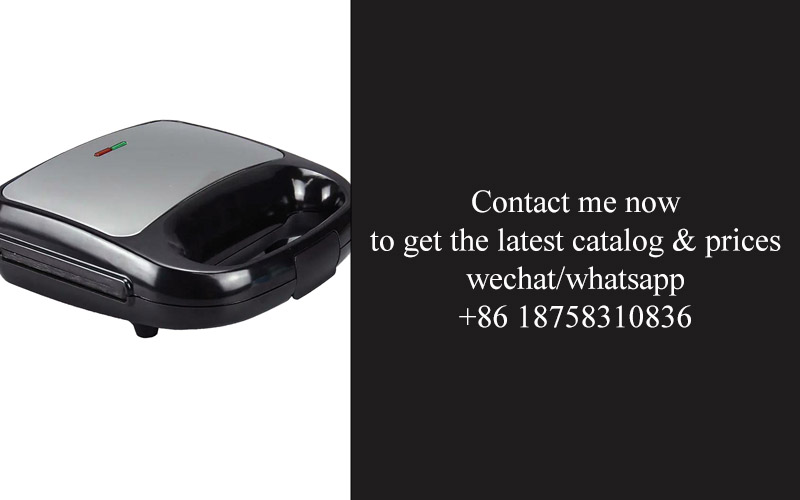
In the ever-evolving landscape of kitchen appliances, ETL-listed commercial units are not just a segment of the market; they are a testament to the industry’s commitment to innovation and quality. As we look ahead, several factors are shaping the future of these units, promising both challenges and opportunities.
The integration of smart technology is set to redefine the user experience. Imagine a commercial kitchen where appliances can communicate with each other, optimizing workflow and energy efficiency. ETL-listed units are likely to lead this charge, with features like predictive maintenance and remote monitoring becoming standard.
Energy efficiency is no longer just a buzzword; it’s a necessity. With rising energy costs and environmental concerns, ETL-listed commercial units will continue to push the boundaries of energy-saving technologies. From induction cooktops to LED lighting, these appliances are not just reducing operational costs but also contributing to a greener planet.
Customization is key in the commercial kitchen space. ETL-listed units will cater to a wide range of industries, from restaurants to hospitals, each with unique requirements. Modular designs and customizable features will become more prevalent, allowing for a perfect fit in any setting.
The rise of the gig economy and the demand for flexible workspaces are reshaping the commercial kitchen landscape. ETL-listed units will need to adapt to smaller, more agile kitchens that can cater to pop-up restaurants and mobile catering services. Compact, yet powerful appliances will be in high demand.
Sustainability is not just about the materials used but also about the lifecycle of the product. ETL-listed units will increasingly focus on recyclability and the use of sustainable materials. This shift will not only align with environmental goals but also resonate with consumers who are increasingly conscious of their ecological footprint.
Regulatory changes and safety standards are a constant in the commercial kitchen industry. ETL certification ensures that appliances meet stringent safety requirements, but the future will see even higher standards being set. Appliances will need to be not just safe but also adaptable to future regulations.
The digital transformation of the kitchen will continue to accelerate. ETL-listed units will incorporate more IoT (Internet of Things) capabilities, allowing for seamless integration with kitchen management systems. This will lead to improved operational efficiency and better inventory management.
Innovation in materials science will also play a significant role. Lightweight, durable, and easy-to-clean materials will be the norm, enhancing the longevity and ease of maintenance of commercial kitchen appliances.
Lastly, the global nature of the foodservice industry means that ETL-listed units will need to cater to diverse cultural preferences. This will require a broader range of cooking technologies and functionalities, ensuring that these units are truly versatile and universally appealing.
As the landscape of the commercial kitchen evolves, ETL-listed commercial units will continue to be at the forefront, driving the industry towards a future that is both efficient and sustainable. The challenge for manufacturers will be to anticipate these changes and lead the way with products that not only meet but exceed the expectations of the modern kitchen operator.
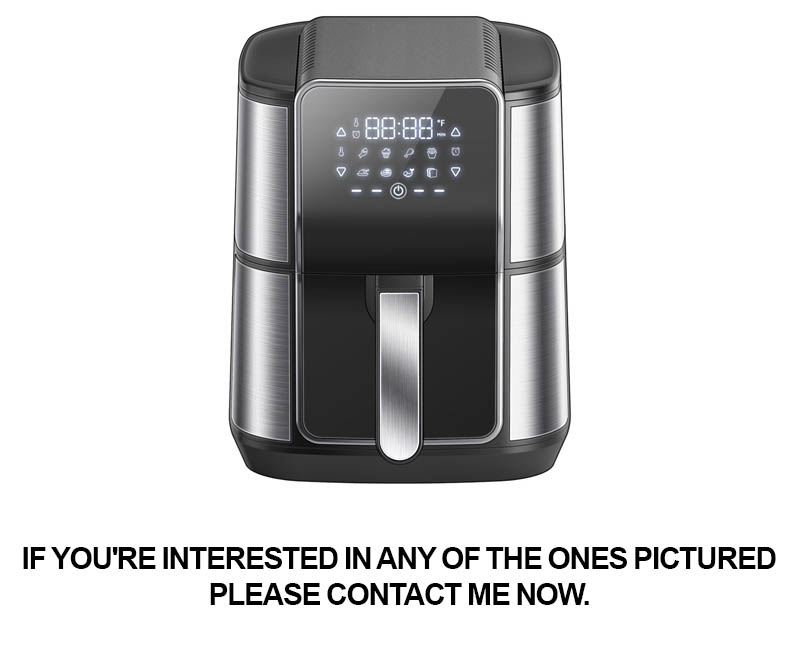
In reflecting on the journey of ETL listed commercial units, it’s clear that the landscape of kitchen appliances has been significantly transformed. The evolution from basic functionality to sophisticated technology has been a testament to the industry’s adaptability and innovation. As we stand at the precipice of further advancements, it’s essential to consider the impact of these units on both consumers and the broader market.
Consumer Expectations EvolvingCustomers today are not just looking for appliances that function; they seek smart, efficient, and aesthetically pleasing devices. The rise of ETL listed commercial units has not only met these expectations but has also raised the bar. From intuitive interfaces to predictive maintenance, these units are not just tools but companions in the kitchen.
Safety and Compliance as CornerstonesThe ETL certification serves as a beacon of quality and safety. It ensures that commercial kitchen appliances meet stringent standards, providing peace of mind to both businesses and consumers. The certification process has pushed manufacturers to prioritize safety features, leading to a more secure and reliable product line.
Technological IntegrationThe integration of technology into commercial kitchen appliances is a game-changer. Smart features like remote monitoring, energy management systems, and even AI-driven menu suggestions are becoming the norm. This integration not only streamlines operations but also opens doors for new business models and services.
Market Expansion OpportunitiesAs the demand for ETL listed commercial units grows, so does the market for these products. This expansion is not limited to established markets; it’s a global phenomenon. Emerging markets are beginning to embrace advanced kitchen technology, presenting opportunities for growth and innovation.
Environmental ResponsibilityThe industry’s focus on sustainability has led to the development of eco-friendly ETL listed commercial units. Energy-efficient designs, recyclable materials, and reduced waste are becoming integral parts of the product development process. This shift is not just a trend but a necessary response to environmental concerns.
The Human ElementDespite the technological advancements, the human element remains crucial. Training staff to operate these complex units effectively, ensuring they are user-friendly, and providing exceptional customer service are all part of the equation. The success of ETL listed commercial units hinges on the seamless interaction between technology and the people who use it.
The Regulatory LandscapeRegulatory bodies play a pivotal role in shaping the future of ETL listed commercial units. As standards evolve and new technologies emerge, these bodies will continue to set the stage for compliance and safety. Staying abreast of these changes is essential for manufacturers and businesses to remain competitive.
Globalization of TrendsTrends in the European and American markets are increasingly influencing other regions. The adoption of smart kitchen appliances, for instance, is no longer confined to developed countries. This globalization of trends suggests a bright future for ETL listed commercial units worldwide.
The Potential for DisruptionThe rise of ETL listed commercial units has the potential to disrupt traditional business models. With the ability to offer predictive maintenance and real-time data analytics, these units could transform the way commercial kitchens operate. This disruption could lead to more efficient operations, reduced downtime, and ultimately, better service for customers.
Innovation as a ConstantThe pace of innovation in the commercial kitchen appliance industry is relentless. Continuous improvement and the introduction of new features are the norm. This drive for innovation ensures that ETL listed commercial units remain at the forefront of technological advancements.
The Path ForwardAs we look to the future, the path for ETL listed commercial units is clear. It’s a path marked by innovation, sustainability, and a deep understanding of consumer needs. By embracing these principles, the industry can continue to evolve, providing solutions that not only meet the demands of today but also anticipate the challenges of tomorrow.